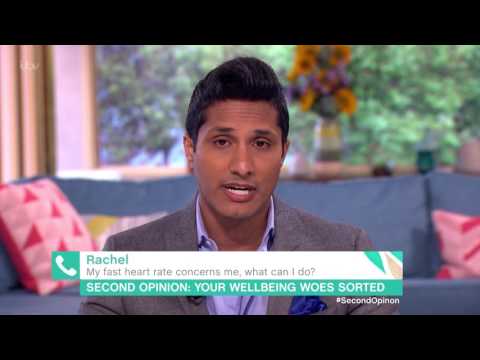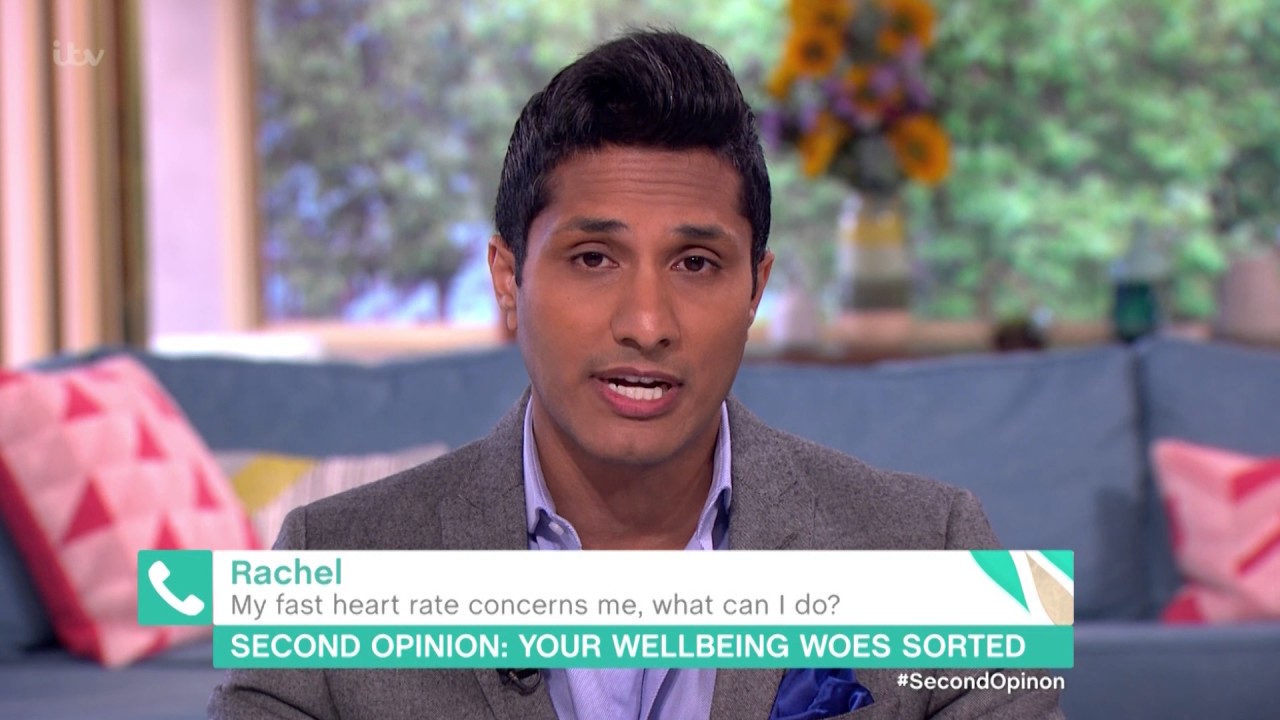When your heart beats too fast, it can set off a cascade of intriguing physiological reactions that leave you both fascinated and concerned. Known as tachycardia, this rapid heart rate can make you acutely aware of the incredible power and complexity of the human body. Each beat thumps through your chest, reminding you of the delicate balance between life and vulnerability. As your heart races, blood is propelled through your arteries, surging with an intensity that leaves you captivated by the remarkable efficiency of your cardiovascular system. But when your heart accelerates beyond its normal rhythm, your body enters a heightened state of alertness. Adrenaline surges through your veins, intensifying your senses and preparing you for action. You may feel a mix of exhilaration and trepidation, as your body’s fight-or-flight response kicks into high gear. Your mind races alongside your heart, seeking answers and understanding about this physiological phenomenon. Concerns may arise as you contemplate the potential consequences of a consistently fast heart rate. The strain on your heart and blood vessels can lead to long-term health complications, such as heart failure or arrhythmias. The quest for knowledge and strategies to manage this condition becomes paramount, as you strive to regain control over your own cardiovascular destiny. Ultimately, the experience of a fast heartbeat serves as a captivating reminder of the intricate workings of the human body. It prompts a desire to delve deeper into the realms of cardiology, physiology, and self-care, as you seek to unravel the mysteries behind this compelling biological phenomenon.

Effects of Tachycardia (Fast Heartbeat) on the Body
| Effect | Description |
|---|---|
| Decreased Blood Flow | When the heart beats too fast, it does not have enough time to fill with blood between contractions. This results in decreased blood flow to various organs and tissues, potentially leading to reduced oxygen delivery and impaired function. |
| Shortness of Breath | Tachycardia can cause the heart to pump blood less efficiently, leading to inadequate oxygen supply to the lungs. This can result in shortness of breath and difficulty in performing routine activities. |
| Increased Cardiac Workload | A fast heartbeat forces the heart to work harder to maintain the same level of blood circulation. This increased workload can put a strain on the heart muscles, potentially leading to cardiac fatigue or even heart failure in severe cases. |
| Palpitations | Patients with tachycardia often experience palpitations, which are sensations of a rapid or irregular heartbeat. These palpitations can cause anxiety, dizziness, and discomfort. |
| Decreased Exercise Tolerance | Tachycardia can limit an individual’s ability to engage in physical activities due to the heart’s reduced ability to pump blood efficiently. This leads to decreased exercise tolerance and diminished overall physical performance. |
| Increased Risk of Blood Clots | When the heart beats too rapidly, blood may pool or stagnate in the chambers. This can increase the risk of blood clots, which can then travel to other organs and cause severe complications such as strokes or pulmonary embolisms. |
| Cardiac Arrhythmias | Tachycardia is often associated with irregular heart rhythms or arrhythmias. These abnormal electrical impulses can disrupt the heart’s normal pumping action, leading to further complications if left untreated. |
“Beating Faster: Tackling My Worries about a Racing Heart | This Morning”
What Happens When Your Heart Beats Too Fast
Heart palpitations, or the sensation of a rapid or irregular heartbeat, can be a cause for concern. While occasional heart palpitations are generally harmless, persistent or frequent episodes may indicate an underlying health condition. This article explores the potential causes, symptoms, and risks associated with a fast heart rate.
Understanding Heart Rate
Before delving into the effects of a fast heartbeat, it’s important to understand what constitutes a normal heart rate. In adults, a resting heart rate typically ranges between 60 and 100 beats per minute (bpm). During physical activity or periods of stress, the heart rate may increase, which is a natural response. However, consistently elevated heart rates can have adverse effects on the body.
Causes of a Fast Heart Rate
A fast heart rate, also known as tachycardia, can be caused by various factors. Some common causes include:
1. Physical activity: Engaging in intense exercise or activities that elevate the heart rate can cause a temporary increase in heart rate. This is typically not a cause for concern, as the heart rate returns to normal once the activity is ceased.
2. Stress and anxiety: Emotional stress or anxiety can trigger the release of stress hormones, which can lead to an elevated heart rate. While this is usually temporary, chronic stress or anxiety may contribute to a persistently fast heartbeat.
3. Medications and substances: Certain medications, such as decongestants or asthma inhalers, can increase heart rate as a side effect. Additionally, substances like caffeine, nicotine, and illicit drugs can also have a stimulating effect on the heart.
4. Medical conditions: Various medical conditions can cause an abnormally fast heart rate. These include thyroid disorders, heart disease, electrolyte imbalances, and certain genetic conditions. It’s essential to consult a healthcare professional to determine the underlying cause.
Symptoms of a Fast Heart Rate
A fast heart rate may manifest with a range of symptoms, including:
1. Heart palpitations: The primary symptom of a fast heart rate is the sensation of a rapid or irregular heartbeat. This can be accompanied by a pounding sensation in the chest.
2. Shortness of breath: When the heart beats too quickly, it may not have enough time to adequately fill with blood. This can result in reduced oxygen supply to the body, leading to shortness of breath.
3. Dizziness or lightheadedness: Insufficient blood flow to the brain can cause dizziness or lightheadedness. Individuals may feel faint or experience a sensation of spinning.
4. Chest pain: Some individuals may experience chest pain or discomfort as a result of a fast heartbeat. This pain can sometimes radiate to the arms, neck, or jaw.
5. Fatigue: A persistently fast heart rate can put additional strain on the heart, leading to feelings of fatigue or weakness.
Risks and Complications
While occasional episodes of a fast heart rate are generally harmless, chronic or untreated tachycardia can have serious health consequences. Some potential risks and complications include:
1. Increased risk of stroke: When the heart beats too quickly, blood flow may become turbulent, increasing the risk of blood clots. These clots can travel to the brain, leading to a stroke.
2. Heart failure: A persistently elevated heart rate can strain the heart, eventually leading to heart failure. The heart may become weakened and less effective at pumping blood throughout the body.
3. Fainting or loss of consciousness: In extreme cases, a fast heart rate can cause a sudden drop in blood pressure, leading to fainting or loss of consciousness.
4. Decreased quality of life: Living with a fast heart rate can be distressing and impact an individual’s overall quality of life. It may limit physical activity, cause anxiety, and affect daily functioning.
5. Increased mortality: In severe cases or underlying heart conditions, a consistently fast heart rate can increase the risk of premature death.
If you experience frequent or persistent heart palpitations or suspect a fast heart rate, it’s crucial to consult a healthcare professional. They can evaluate your symptoms, perform diagnostic tests, and develop an appropriate treatment plan to address the underlying cause.
In conclusion, a fast heart rate can be a symptom of various factors, ranging from physical activity and stress to underlying medical conditions. Recognizing the causes, symptoms, and risks associated with a fast heartbeat is essential for maintaining heart health and overall well-being.

